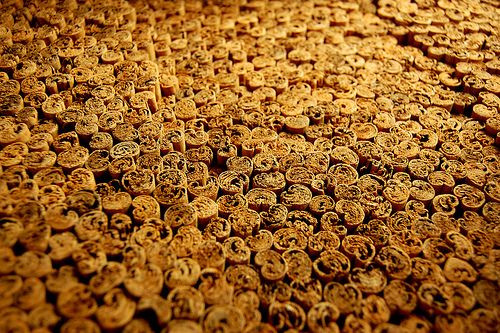Cinnamon Could Help Regulate Menstrual Cycles, Ease Common Cause Of Infertility: What Is PCOS?

Homeopathic medications are rarely as effective as the prescriptions written by your doctor. But researchers behind a new small study have found the method particularly potent, as women with polycystic ovary syndrome (PCOS) reported nearly twice the number of menstrual cycles while taking a daily cinnamon supplement than women given a placebo.
A team of researchers from Columbia University Medical Center recruited 16 women with PCOS, a hormone imbalance that represents the most common cause of female infertility, to take either a 1,500-milligram cinnamon tablet or a placebo. The 11 women taking the daily dose of cinnamon experienced an average of nearly four menstrual periods over the six-month study period compared to the control group’s 2.2. Two of the women in the cinnamon group even reported spontaneous pregnancies, meaning they happened unassisted.
"There is a lot of interest in homeopathic or natural remedies for this condition," study author Dr. Daniel Kort, a postdoctoral fellow in reproductive endocrinology at the medical center, told HealthDay. "This may be something we can do using a totally natural substance that can help a large group of patients."
PCOS affects roughly five to 10 percent of women of childbearing age in the United States, or roughly five million Americans. The condition has been implicated as likely genetic, but scientists believe its more distal causes trace back to insulin insensitivity. Thus, obese women are far more likely to suffer from PCOS, and experts claim that even modest body weight losses of five to 10 percent can “improve many of the features of PCOS.” These commonly include menstrual irregularity, infertility, acne, excess hair growth on the face or body, and thinning scalp hair.
What effect cinnamon has on women, exactly, is still something of a mystery. Researchers point to the spice’s ability to improve glucose and insulin production as playing a role, as prior research into cinnamon showed it reduced insulin resistance in diabetics. What scientists do know is that any gains made in the fight against PCOS and infertility mark progress in preventing more serious complications further down the line.
PCOS "is one of the most common causes why women don't have regular menstrual cycles," Kort said. "But the clinical consequences later in life are truly great – from an increased risk of diabetes and glucose intolerance to endometrial cancer. Many women can go their whole lives without regular menstrual cycles, and it doesn't necessarily bother them until they want to have children."
While another expert called the cinnamon’s effect “welcome and interesting,” and encourages women with PCOS to take a daily cinnamon supplement as a precautionary measure, consulting with a physician about more serious treatment options is still advised.
"Any work that's something nutritional in nature and seems to affect the abnormal physiology of polycystic ovaries is welcome," Dr. Avner Hershlag, chief of the Center for Human Reproduction at North Shore University Hospital, told HealthDay. "If they want to spice up their life and take it, that's fine... but I think the best thing to do when you have polycystic ovaries is to be under the control of a physician."



























